
The Elevate Journal

Facilitating Groups Utilizing Emergent Strategy Principles
At Elevate, we have the pleasure of working with many different groups working toward changing the systemic conditions that are creating and reinforcing marginalization and injustice. We do this in a number of spaces, from early childhood to homelessness to workforce development, and in every situation, we’re challenged by the complexity of the systems, the scope of the challenges, and the nuances of the relationships of the people in the room. These spaces require us to be not only skilled facilitators but also constant learners and scholars of the ways in which systems change can actually be brought about.
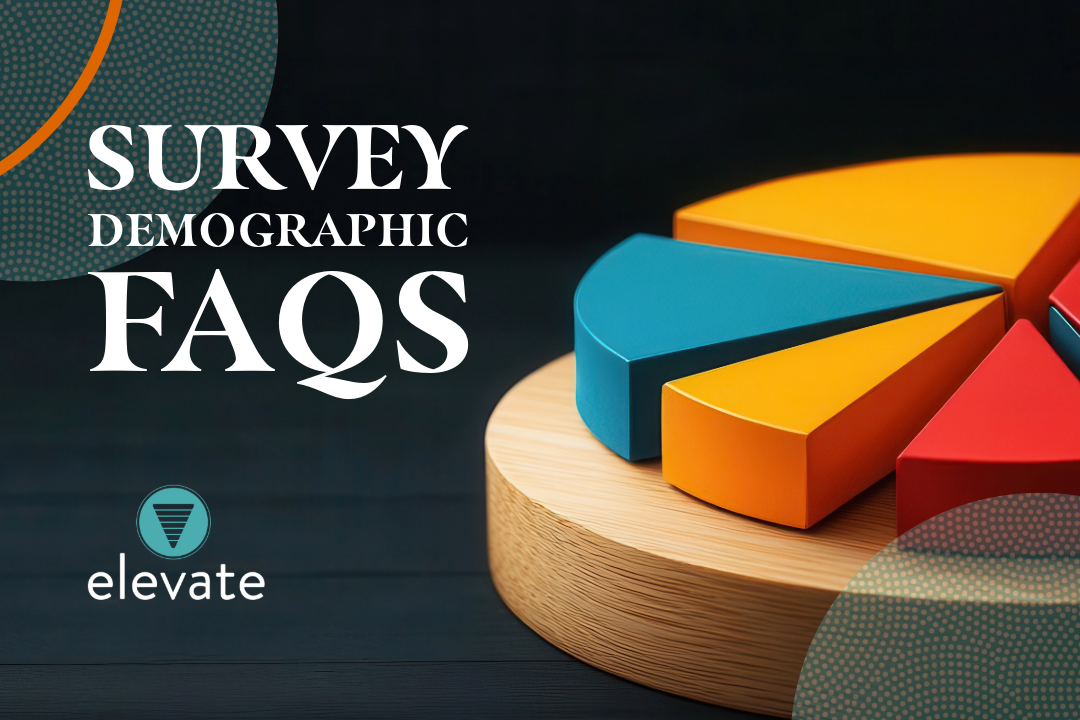
Survey Demographic FAQs
When designing survey tools with our clients, we often receive many questions surrounding the demographic portion of the questionnaire. Demographic questions can be tricky for a number of reasons, and there is no real consensus around best practices. In this post, we will share Elevate’s answers to some demographic FAQs that are backed by literature and our own experience in consulting.
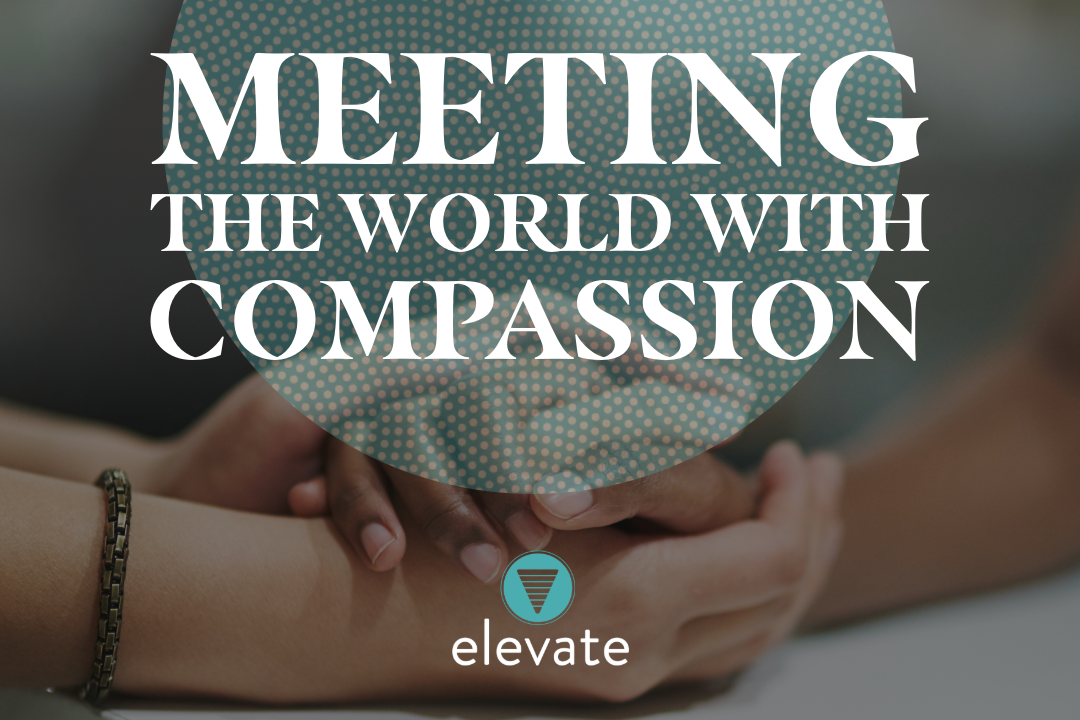
Meeting the World with Compassion
Even at a time when the company is growing and we all feel connected to our work, we also each struggle with some version of malaise, some days more than others. At Elevate we typically view the world through the lens of systems, and this is a story about how our internal system is impacted by and can impact the external systems that we inhabit.
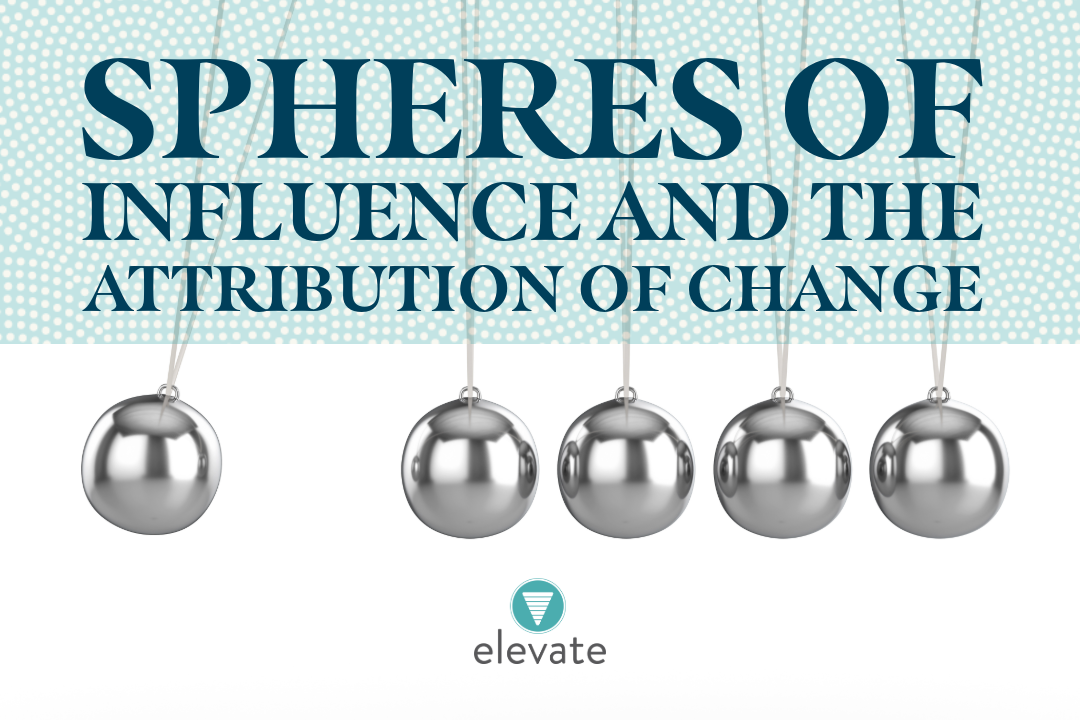
Spheres of Influence and the Attribution of Change
A lot of our initial conversations with clients start with some version of the following: “We really don’t know how to prove that we do x. We know that we see that change day to day, but we don’t have the data to prove that we caused that change.” The key word in this request, of course, is “caused.” Often, organizations feel pressured to demonstrate that their intervention was the sole cause of an observed change. Even when funders or stakeholders aren’t requesting that directly, it’s often assumed that “proving” that your intervention caused an observed change is still the “holy grail” of evaluation.
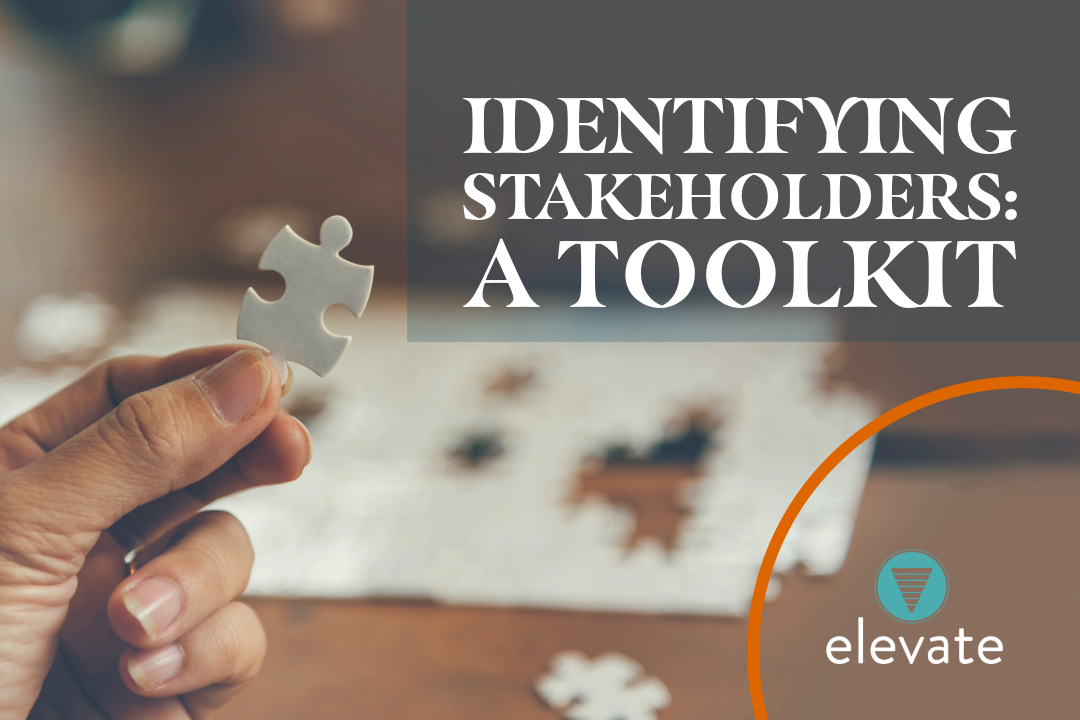
Identifying Stakeholders: A Toolkit
It is likely that the term “stakeholders” is one you’ve heard before. It’s used across sectors to describe someone who has an interest in and/or is affected by a business, an investment, a project, etc. Stakeholders can be individuals, communities, social groups, or organizations. At Elevate, stakeholders are an essential part of our approach to evaluation and to systems change work.
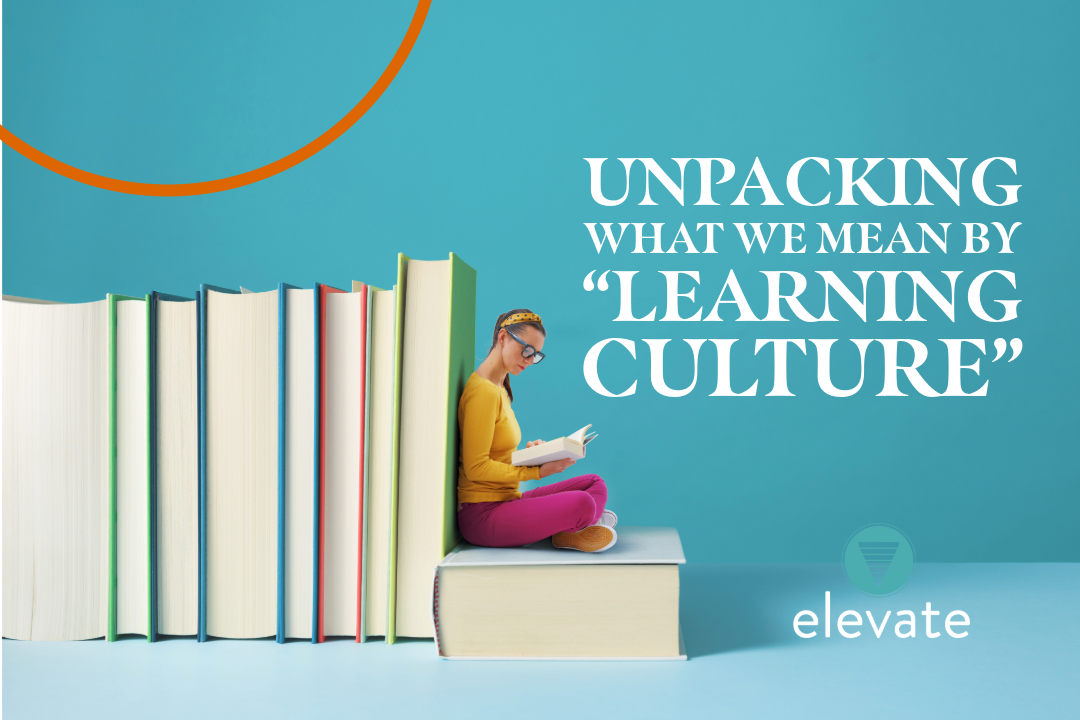
Unpacking What We Mean by “Learning Culture”
You have likely heard or read about the idea of a learning culture. If you heard about it from us, you may have seen the stars in our eyes as we talked about our earnest belief that shifting organizational cultures to center learning can transform the nonprofit landscape, leading to more engaged and fulfilled staff, stronger relationships across agencies, and ultimately, better outcomes for clients.
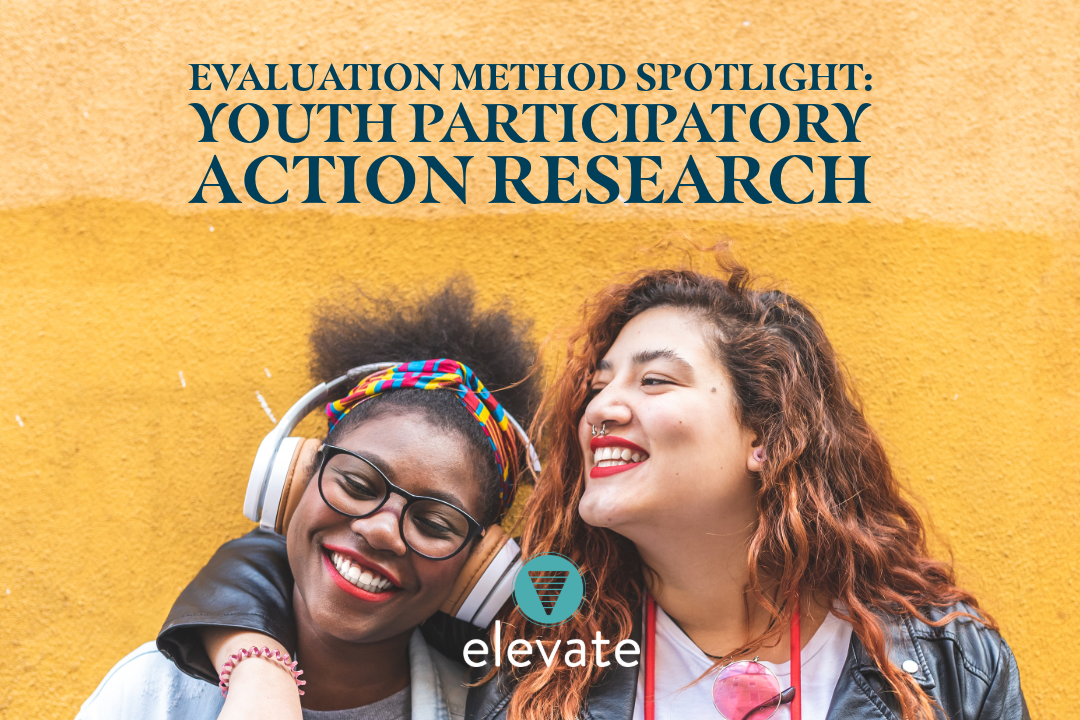
Evaluation Method Spotlight: Youth Participatory Action Research
At Elevate, we strongly believe that evaluation and research must go beyond the numbers to tell the stories of people and communities. As such, we believe in the value of qualitative and community-based, participatory methods and approaches, including participatory action research (PAR). Specifically, we recently had the privilege to support Nashville’s Opportunity Youth Collaborative (OYC) in conducting a youth participatory action research (YPAR) project with its Youth Leadership Team to inform the strategy of the OYC.
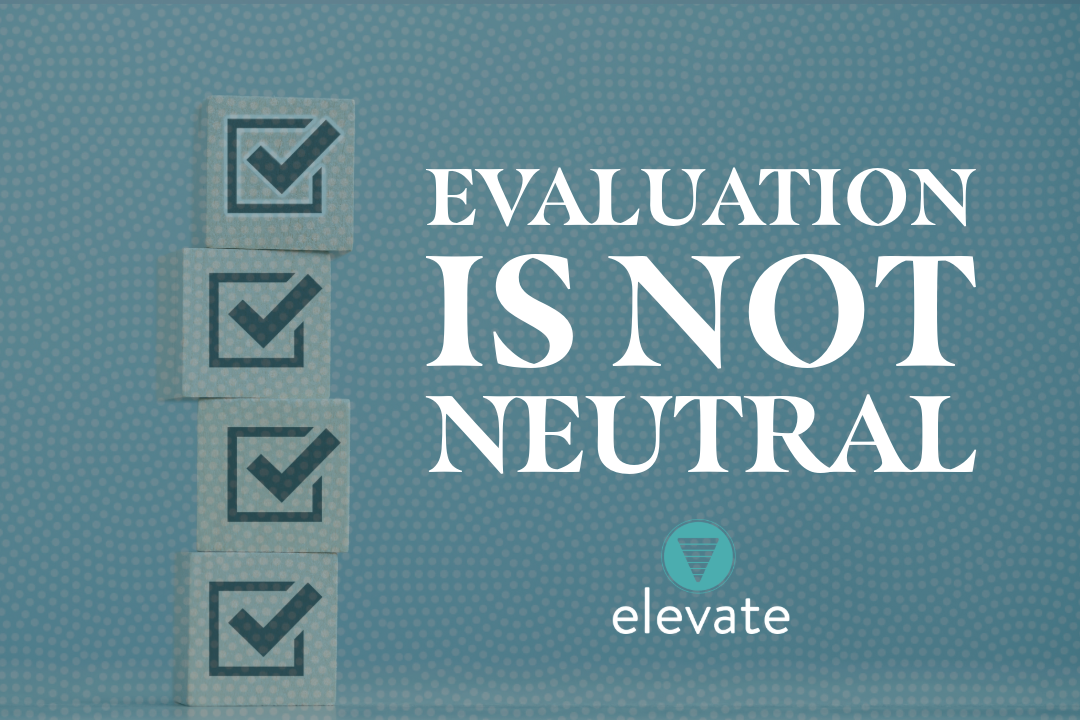
Evaluation is Not Neutral
Over the past few weeks, we have been turning our methods inward to critically examine how we do our work, as well as listening to each other and investigating our experiences, assumptions, and approaches related to equity and oppression. Together we are rebuilding “the Elevate way” based on clearer articulations of why and how our work advances equity.
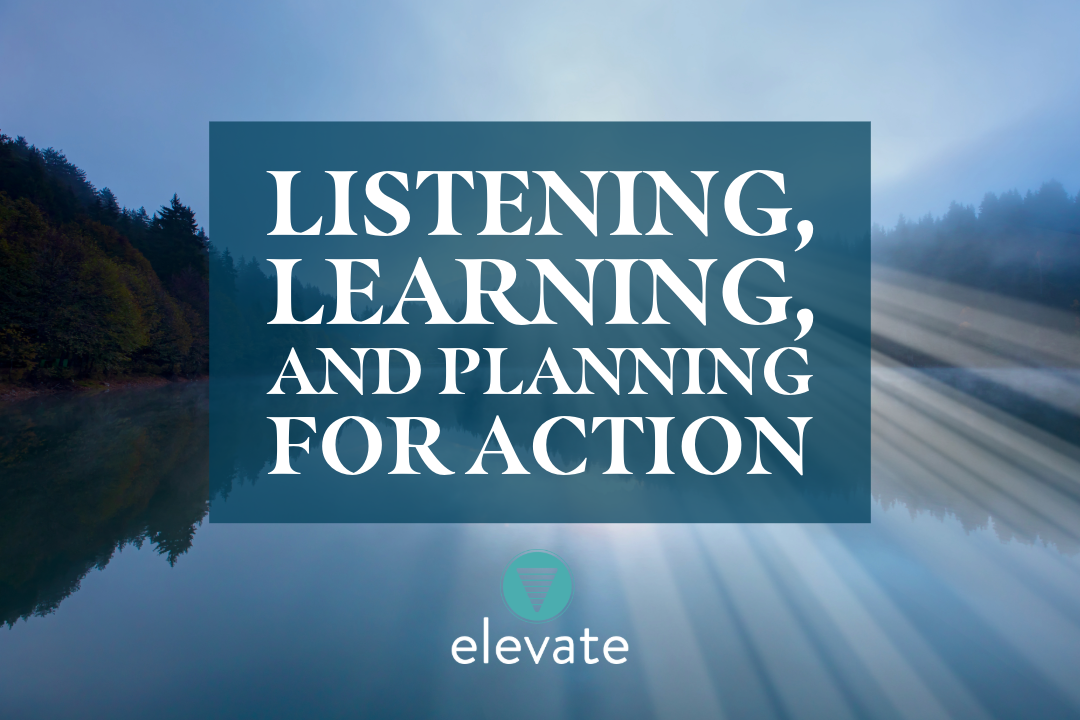
Listening, Learning, and Planning for Action
We unequivocally believe that Black lives matter, and we recognize the power that data and narrative have in the fight for justice. We recognize that as a team of mostly White women, we are privileged in that, most days, we are able to compartmentalize these conversations. We know we don’t have the answers, and we know we will not get it right, but we are committing to making space to reflect, learn, unlearn, and grow.
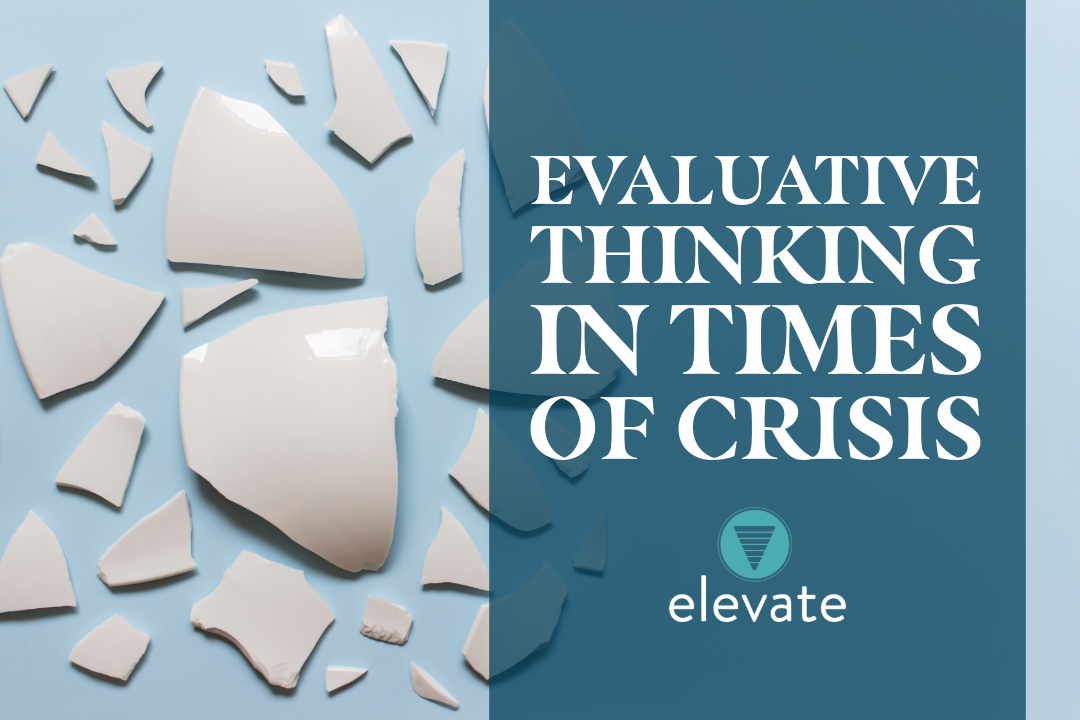
Evaluative Thinking in Times of Crisis
Last week, while listening to one of my favorite podcasts, Pantsuit Politics, something that one of the cohosts really stood out to me. She said, “What a ‘pandemic world’ does is accelerate change and clarify problems.”
